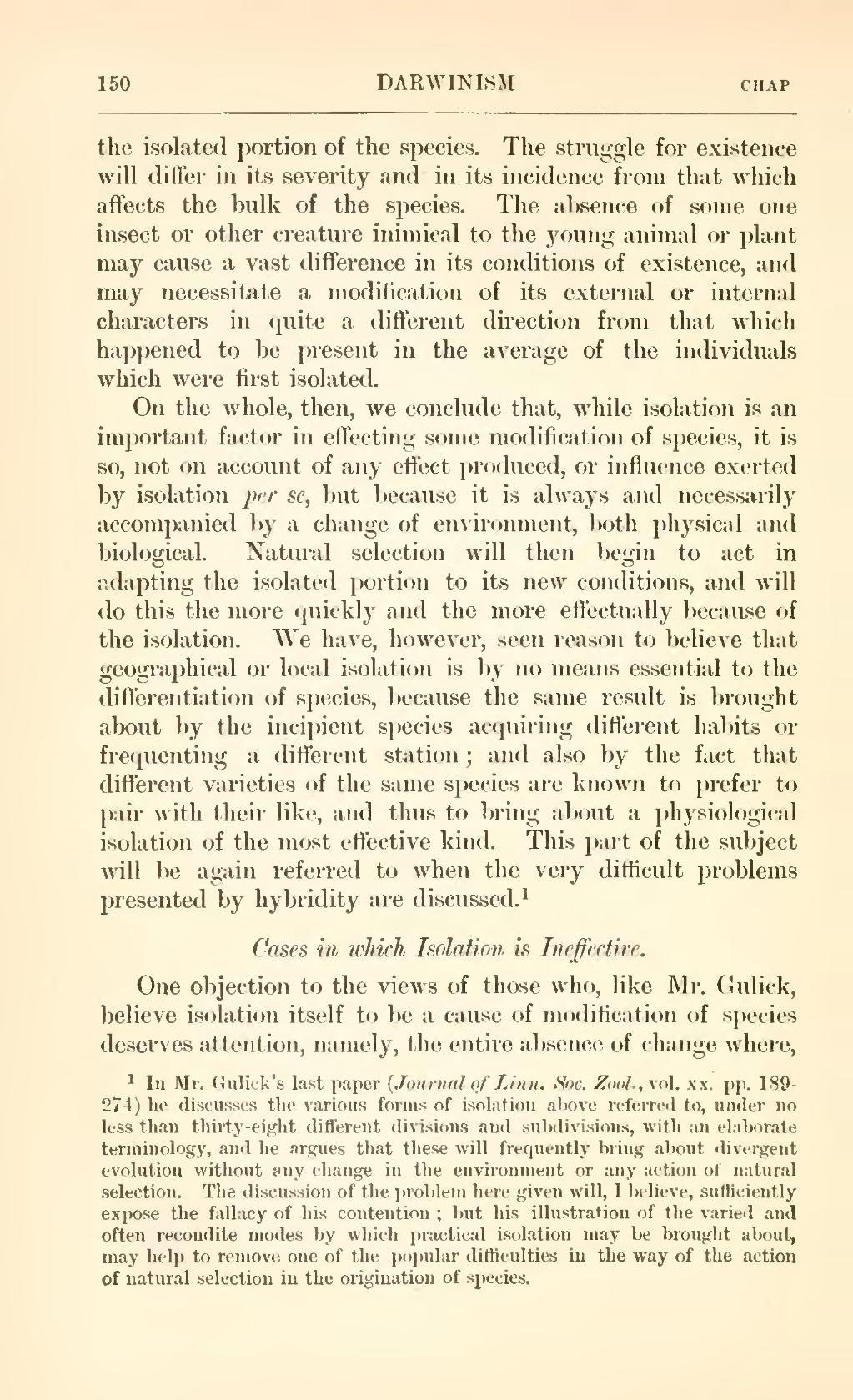the isolated portion of the species. The struggle for existence will differ in its severity and in its incidence from that which affects the bulk of the species. The absence of some one insect or other creature inimical to the young animal or plant may cause a vast difference in its conditions of existence, and may necessitate a modification of its external or internal characters in quite a different direction from that which happened to be present in the average of the individuals which were first isolated.
On the whole, then, we conclude that, while isolation is an important factor in effecting some modification of species, it is so, not on account of any effect produced, or influence exerted by isolation per se, but because it is always and necessarily accompanied by a change of environment, both physical and biological. Natural selection will then begin to act in adapting the isolated portion to its new conditions, and will do this the more quickly and the more effectually because of the isolation. We have, however, seen reason to believe that geographical or local isolation is by no means essential to the differentiation of species, because the same result is brought about by the incipient species acquiring different habits or frequenting a different station; and also by the fact that different varieties of the same species are known to prefer to pair with their like, and thus to bring about a physiological isolation of the most effective kind. This part of the subject will be again referred to when the very difficult problems presented by hybridity are discussed.[1]
Cases in which Isolation is Ineffective.
One objection to the views of those who, like Mr. Gulick, believe isolation itself to be a cause of modification of species deserves attention, namely, the entire absence of change where,
- ↑ In Mr. Gulick's last paper (Journal of Linn. Soc. Zool., vol. xx. pp. 189-274) he discusses the various forms of isolation above referred to, under no less than thirty-eight different divisions and subdivisions, with an elaborate terminology, and he argues that these will frequently bring about divergent evolution without any change in the environment or any action of natural selection. The discussion of the problem here given will, I believe, sufficiently expose the fallacy of his contention; but his illustration of the varied and often recondite modes by which practical isolation may be brought about, may help to remove one of the popular difficulties in the way of the action of natural selection in the origination of species.
